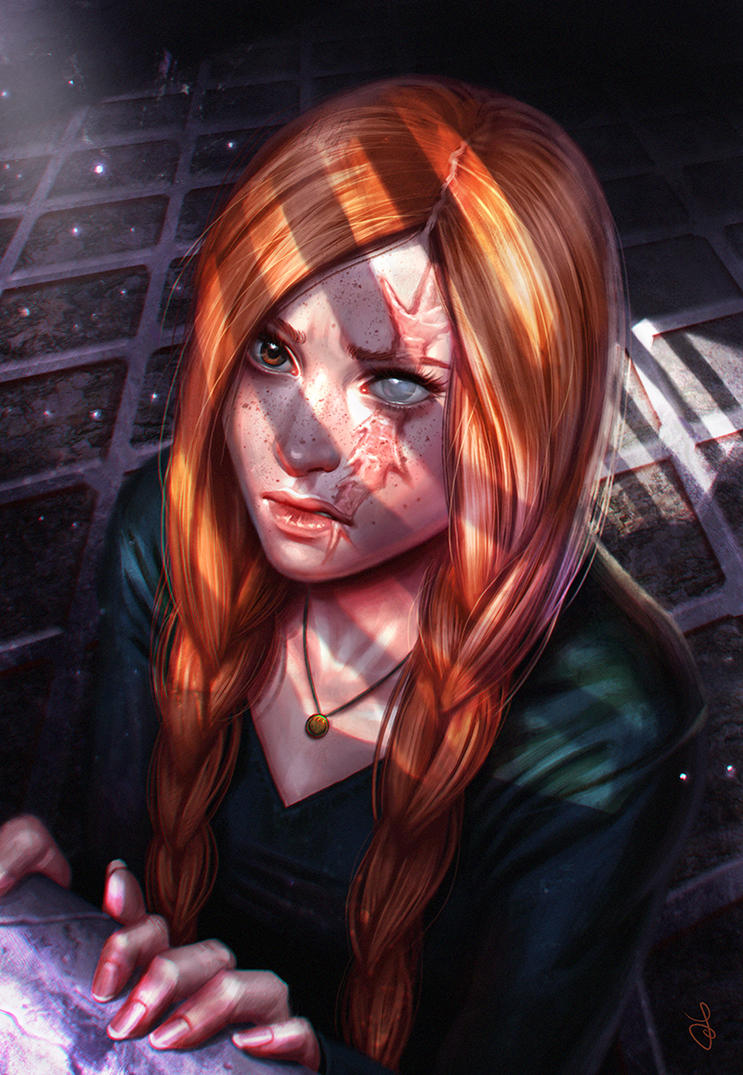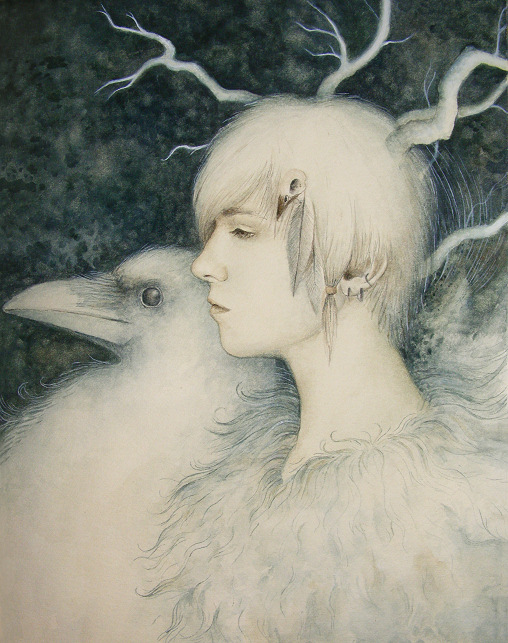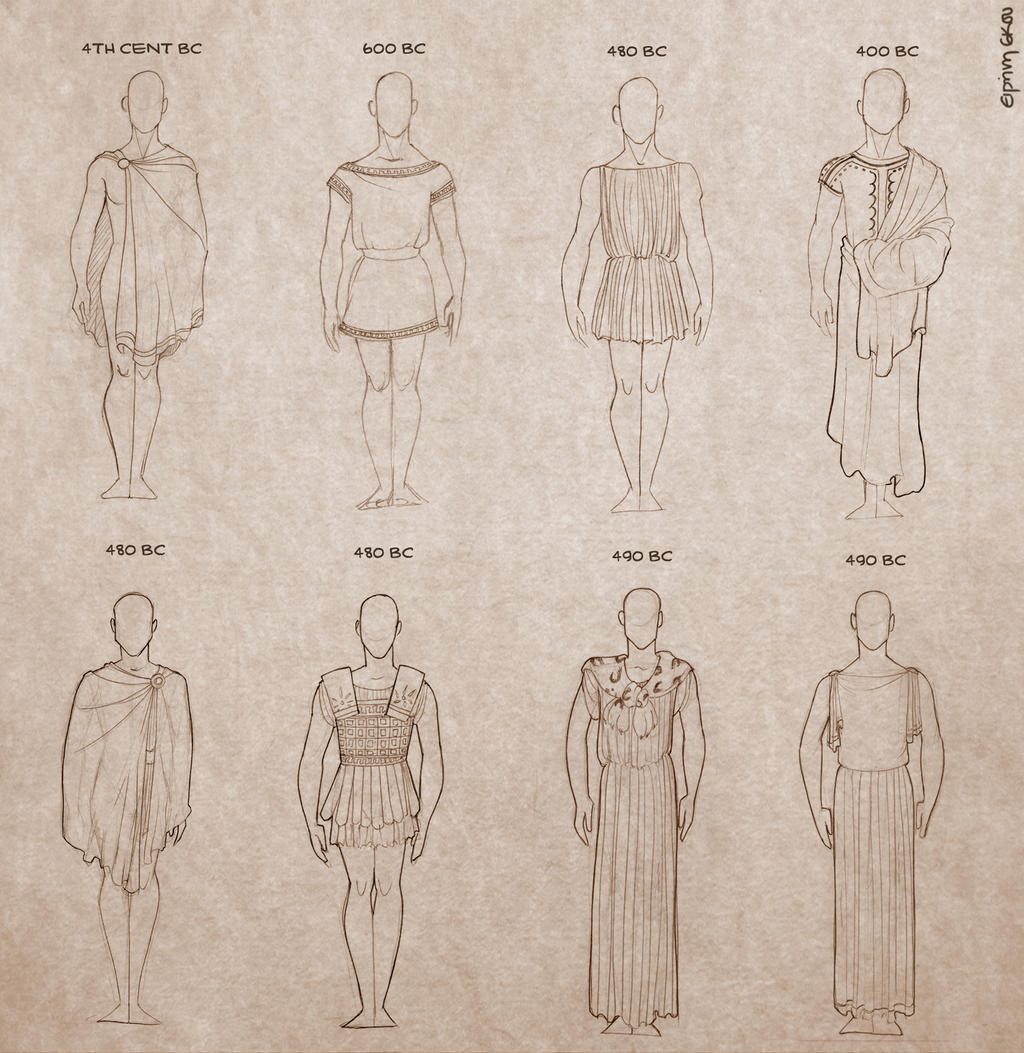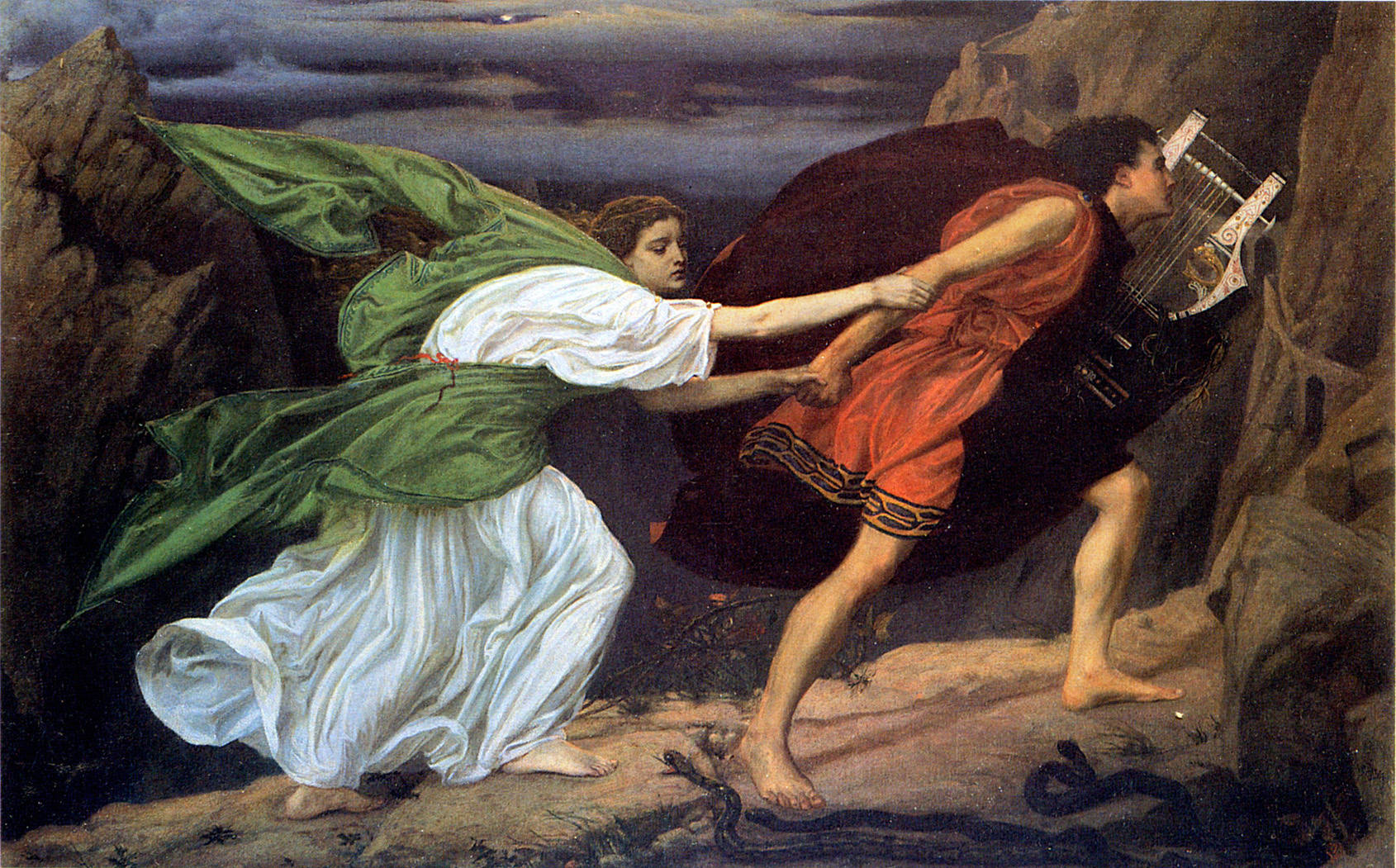D
Damien Kriez
Guest
Original poster

GMs: Damien Kriez and Weiss | Genre: Dark Fantasy, Horror, Devil-lore | Type: Linear
In character thread is (here).

In character thread is (here).

Premise
Dante's Legacy takes place in Dante Alighieri's depiction of Hell. Eons after Virgil and Dante defeated Lucifer and encased him in the frozen lake of Treachery, Hell has become increasingly disorganised. Dante has become a heroic figure to the Damned of Hell, proving to them that the Lord of Darkness can indeed be triumphed over in the name of love and humility, and there was, after all, forgiveness even in perdition. Because of this, the souls revolted, feeling what they haven't felt in eons—hope. From all Nine Circles, groups of repentant freedom fighters who wished to be reconciled with Heaven mustered the strength to escape their eternal plight and after centuries, the humans found unity. Many men and women escaped to Limbo, where the Virtuous Pagans offered any and all Damned a sanctuary in their Seven Gated Citadel of Limbo. Though the revolution was sparked by the collective hope the punished felt, the poet Virgil was elected leader, seeing as his contribution to Dante's escape from the Inferno and ascension to Mount Purgatory was deemed by all to be a worthy and noble act. From a mere Citadel, Limbo has since become a grand and marvellous city. While it still paled in comparison to the burning City of Dis, the Polis, as it was called, provided enough defences, resources, and comfort for the people. It has since become a base of operations for revolutionaries fighting for a noble cause. Inspired by Dante, who even had a statue erected in the Polis to honour him, five mighty heroes must take up the most dangerous job of all.
Meanwhile, the captivity of Lucifer has enticed its own form of chaos, as demonic loyalists work behind the scenes to free their master and quell the rebellion.
Meanwhile, the captivity of Lucifer has enticed its own form of chaos, as demonic loyalists work behind the scenes to free their master and quell the rebellion.

Introduction
This RP will be very one-dimensional for players to adhere to the story. There will be only five human heroes, each coming from five different Circles, and each with his or her own set of skills and abilities. They must be either historical figures (Socrates, Plato, Cleopatra, Alexander the Great, etc.) , or human heroes from mythology and Legend, aside from mythical creatures (Achillies, Lancelot, Calliope, Merlin, Robin Hood etc.) They are enhanced by the magics or resources of Hell (such as, in the Dante's Inferno video game, weapons that stolen from demonic guards or forged from the mystical metals found in Hell, and magical spells are learned, not inherent), while demigods retain the powers they had on Earth. In any case, historical figures, mortal heroes, and even demigods share an equal footing in Hell, and are, in many ways, no different from one another. To conclude and to further prevent any unnecessary digressions in the story, while maximising character dynamics, there will only be five (5) characters, all human, and each coming from a different Circle. No demonic characters will be used, as all demons and sentient inhuman creatures are Satan's forces (non-sentient demonic creatures, like Hellhounds, demonic steeds and other mounts, and other animal-like creatures can and are in fact used by the Revolution).

Character Sheet
Name: The full name. If you'd like, you can also add any epitaphs or nicknames beside the full name.
Age: Because of the fact that you will be playing a human character in Hell, just add whatever age your character appears to be. It need not be the age your character died, or how many years he or she has spent in Hell.
Appearance: You can post a picture, write a description, or do both. I prefer both, so as to get every detail. Pictures of real-life persons are not allowed, and I discourage anyone from using anime. Find realistic art, or nicely drawn portraits of your character. If all else fails, then Anime is fine.
History and Circle: This speaks for itself. Write a short historical background of your character (just one paragraph, since you'll be playing an existing historical or mythological character, anyway.) Answer basic questions like, from where did your character come from? What special event happened in his or her life? How did they die? The real history begins afterwards—where was he or she condemned in Hell to spend eternity? What did they feel after hearing the news about Dante? And how did your character escape to Limbo? Of course, I'd like you to be a discreet as possible with the details, in order to provide a sense of mystery.
(The reason why the History and Circle section came before these sections is I'd like you to have a foundation of why your character acts and feels the way they do, and what changes they encountered to acquire their powers and equipment.)
Personality: What is your character like? What are the things he or she likes and dislikes? What were they like as humans, and how has Hell changed them? Include both positive and negative traits.
Skills and Equipment: What skills or mystical abilities, if they had any, did your characters possess in the land of the living? How has Hell affected, weakened, or strengthened these skills?
Age: Because of the fact that you will be playing a human character in Hell, just add whatever age your character appears to be. It need not be the age your character died, or how many years he or she has spent in Hell.
Appearance: You can post a picture, write a description, or do both. I prefer both, so as to get every detail. Pictures of real-life persons are not allowed, and I discourage anyone from using anime. Find realistic art, or nicely drawn portraits of your character. If all else fails, then Anime is fine.
History and Circle: This speaks for itself. Write a short historical background of your character (just one paragraph, since you'll be playing an existing historical or mythological character, anyway.) Answer basic questions like, from where did your character come from? What special event happened in his or her life? How did they die? The real history begins afterwards—where was he or she condemned in Hell to spend eternity? What did they feel after hearing the news about Dante? And how did your character escape to Limbo? Of course, I'd like you to be a discreet as possible with the details, in order to provide a sense of mystery.
(The reason why the History and Circle section came before these sections is I'd like you to have a foundation of why your character acts and feels the way they do, and what changes they encountered to acquire their powers and equipment.)
Personality: What is your character like? What are the things he or she likes and dislikes? What were they like as humans, and how has Hell changed them? Include both positive and negative traits.
Skills and Equipment: What skills or mystical abilities, if they had any, did your characters possess in the land of the living? How has Hell affected, weakened, or strengthened these skills?

Lore
On Weapons and Magic: All classes of weapons and of magic are readily available in the land of Hell, but make sure to explain why and how you've come to learn such magics. It's easy to say you've acquired a sword made from metals and resources from Hell, but once again, magic is a learned ability. Also, when choosing weapons, make sure you've got diversity on your mind. Everyone having one specific type of weapon is corny. That goes the same way for everyone being proficient in a single type of magic. Also, no futuristic weapons like guns. The Inferno is very rustic and old fashioned, so let's be too.
On Flora and Fauna: The Flora and Fauna of Hell are exaggerated, demonised, corrupted versions of their Earthly counterparts. Some may be massive, hostile, and extremely dangerous, and others, able to be tamed with effort and patience. Alongside these existing albeit corrupted animals, live mythical beasts of any and all cultures, ancient religions, legends, and mythologies. Plants, too, may be hyperbolic in their appearance and taste, with some Hellish counterparts of existing Earthly plants either poisonous or even, alive.
On Demons: Much like the Inferno's Fauna, there exists sentient demons of any and all cultures, ancient religions, legends, and mythologies. You'd see demons such as the terrible Sirens, Gorgons, Giants, Djinns, and whatnot. This list barely scratches the surface of the variety of demonic denizens of Hell.
On the Damned: The Damned are basically Hell-affected human beings, metamorphosing and transforming them into tormented versions of themselves. They are still very much human, albeit with the potential to manipulate magic based on their sins and punishment. The appearance of the Damned depends on their sins and punishments as well, and no two Damned look alike.
On Non-Player Characters: Once five (5) or nine (9) player characters have been created, any and all mythological, legendary, and historical characters will be manipulated by the game master.
On Flora and Fauna: The Flora and Fauna of Hell are exaggerated, demonised, corrupted versions of their Earthly counterparts. Some may be massive, hostile, and extremely dangerous, and others, able to be tamed with effort and patience. Alongside these existing albeit corrupted animals, live mythical beasts of any and all cultures, ancient religions, legends, and mythologies. Plants, too, may be hyperbolic in their appearance and taste, with some Hellish counterparts of existing Earthly plants either poisonous or even, alive.
On Demons: Much like the Inferno's Fauna, there exists sentient demons of any and all cultures, ancient religions, legends, and mythologies. You'd see demons such as the terrible Sirens, Gorgons, Giants, Djinns, and whatnot. This list barely scratches the surface of the variety of demonic denizens of Hell.
On the Damned: The Damned are basically Hell-affected human beings, metamorphosing and transforming them into tormented versions of themselves. They are still very much human, albeit with the potential to manipulate magic based on their sins and punishment. The appearance of the Damned depends on their sins and punishments as well, and no two Damned look alike.
On Non-Player Characters: Once five (5) or nine (9) player characters have been created, any and all mythological, legendary, and historical characters will be manipulated by the game master.
On Master Posts: In the IC, there will be two types of posts coming from me. One wherein I will post as my character, and the other, wherein I will post as the Game Master. Basically, Master Posts are where I introduce challenges, enemies, and other forces that act as obstacles that the protagonists must get around. There will be a lot of times where Master Posts will contain a simple character post.

Rules and Regulations
- All Iwaku rules as well as the basic rules apply. This means no godmodding, powerplaying, or what not.
- You mustn't be a jerk to other role-players. In spite of the demonic and hellish nature of this role-play, all participants much exercise proper conduct and behaviour when out of character. Be tactful towards one another, and make use of correct ethics and social morals. When in character, be as evil, as misunderstood, or as liberal as you can be. Criticism is fine, but bashing is not.
- If you do not agree with someone or something, respectfully tell them that in the OOC, so that everyone may pitch in their ideas and opinions. But stay civil at all times. If two individuals cannot cooperate, the GM will have the last say.
- As I've said, only one character per player. There's a maximum of five (5) people, but others can still file an application.
- Players must have a great relationship with one another. That said, you must respect one another both IC and OOC. A corollary to this rule is you must never control, harm, or kill another player's character without their consent.
- Communication is key to an effective RP. Therefore, I encourage you all to talk about whatever crosses your mind. Most importantly, if you can't post, please tell us beforehand.
- Posting frequency will be 2-3 posts per week. 1-2 if you're really busy and need to attend to life's more pressing matters.
- Death exists even in Hell. If your character is killed, his or her body is salvaged by the demons as feed. In other words, you're gone (unless it's planned that the character would be revived, or if you appeal to me.)

Cast of Characters
Orpheus of Limbo (c) Damien Kriez
Tomoe Gozen of Lust (c) Juicebox Jane
Qasim of Greed (c) Gooby
Gruoch, Lady Macbeth of the Malebolge (c) Weiss
Sir Mordred Pendragon of Treachery (c) The Philosoraptor

The Story Thus Far...
I
n the dead of night, Virgil, the wise and courageous leader of the mortal rebellion in the Inferno turned into an old, decrepit man with an enfeebled mind, awoke from a terrible foreboding. With trepidation in the heart, the Roman poet broke free from the confines of his own home and headed straight for the docks of Limbo. There, he found the Greek bard Orpheus, ready to voyage into the depths of Hell itself. The musician was mightily frustrated with Virgil, contemplating on the time he could have gone to Paradise and be reunited with his beloved, Eurydice.
Last edited by a moderator:












